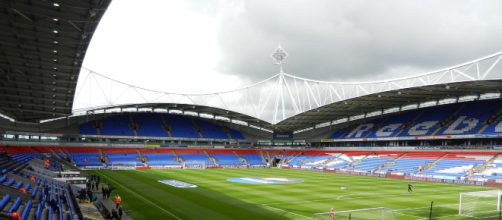The Rugby Football League comes under intense scrutiny and criticism from the Rugby League fraternity - often for justified reasons - but the idea of a Challenge Cup double-header is one that needs to be praised. Bolton Wanderers' Macron Stadium will be the host - a stadium which has a capacity of just under 30,000 and which is no stranger to hosting Rugby League events with three World Club Challenge games and three international Test matches being played there between 1998 and 2007.
Whilst semi-final fixtures in the past have been played at new, relatively small stadiums such as the Leigh Sports Village or the Halliwell Jones, teams have still been unable to fill the ground.
The empty seats on TV are not exactly a sight that fans or would-be fans want to see. Therefore, the news last week that the semi-finals are close to a sell-out at Bolton is great for the sport and confirms the belief that a double-header was the right decision.
Empty stadiums
Although Hull FC and Leeds' semi-final in 2017 was just 700 spectators short of capacity at Doncaster's Keepmoat Stadium, the Halliwell Jones - which played host to Wigan and Salford - was filled with just 10,800 supporters. On the face of it this figure may not seem too troubling, but the stadium actually holds over 15,000. The sight of so many empty blue and yellow seats is not what fans wanted to see for such an important match.
When Wigan played London in a 2013 Challenge Cup semi-final, the crowd was a mere 6,200 at the Leigh Sports Village - a stadium which has a 12,000 capacity. Yes, London were and are poorly supported, but the fact that one side of the stadium was not even open made a mockery of what should have been a huge game. If - and if it's a big if - that game and the other semi-final - which was Hull FC versus Warrington - were held on the same day in the same ground then the overall figure would have been greater than the two played separately.
Attracting more fans
Critics may ask how can I be so sure of this? Well, a double-header is a fantastic way of attracting more neutrals and not just fans of teams that make up the final four; people want to see Rugby League and if hosted at a venue that fans don't often get to travel to - like Bolton's Macron Stadium - then more spectators are likely to turn up if not just to sample something different.
Plus, it's two games for the price of one - who doesn't love a bargain?
St Helens, Warrington, Leeds and Catalans make up the semi-final teams in 2018 and, whilst the first three sides on this list are followed by a great number of supporters, Catalans are not expected to bring thousands over from France for what is essentially an away match - albeit an important one at that.
To have played the St Helens-Catalans game at a neutral venue on its own would have been non-sensical; now that this game will be played alongside the Warrington-Leeds semi-final, the lack of the Catalans support will not be an issue. In fact, the Dragons might even be supported by Warrington and Leeds fans taking their seats for their own crunch match later on.
Perhaps some ordinary Bolton football fans might see what all the fuss is about too.
Get the sport out there
Exposure is essential for any sport trying to battle against its rivals and for five hours on Sunday 8 August, BBC Sport will cover both games on all of its channels in one afternoon. What better way to attract new interest than to have an afternoon of Rugby League live on the BBC. For this idea, the RFL deserve applause; it's an innovative creation and one that, if it takes off, could have potentially groundbreaking effect.




